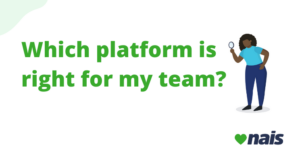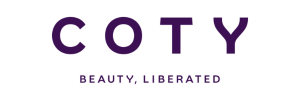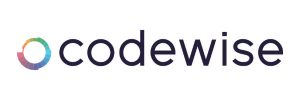Employee engagement? Employee experience? What’s the difference? Well, you’ve come to the right article… You will go over the difference with industry expert Asha Wilde -employee experience manager at BT- to help define, differentiate and practice the important HR practices that should be integrated into your company.
To help you understand the difference between employee engagement and experience you will learn:
- What is employee engagement?
- What is employee experience?
- What is the difference between employee engagement and employee experience?
- What is the future of employee experience and engagement?
Employees are the most valuable asset of a company. In truth, a healthy and motivated workforce can move mountains and achieve incredible business milestones.
So, naturally, management should invest in strategies, tools, and resources to implement a strong and positive employee experience. As a result, employees with high employee experience and engagement receive increased productivity, lower retention, and a motivated workforce.

The past year has left time for reflection and removed all “ normal” routines. In their place, new dynamics have been introduced to social, economic, and business aspects. Naturally, that has affected the level of engagement and experience that employees feel at work.
Companies that recognize employees as their biggest asset invest in strategies and practices that ensure that their employees feel engaged and live a fruitful experience in their work lives. As a result of the last year, companies have come to learn and adapt new procedures that maintain employees feeling fulfilled and engaged with their company.
More eloquently said, Asha Wilde, Employee Experience Manager at BT, shares her knowledge, the benefits, and the urgency of Employee Experience in the workplace:

“As we know there is a war on talent and companies need to not only get talent into the business but need to retain them as well! Having a combination of engagement, experience and cultural actions, and a steady stream of promotion around these areas will help get talent into any organisation. Having a focus on employee experience will help the existing workforce feel listened to, feel valued and they will want to do more for the organisation because they will feel they belong.”
What is employee engagement?

Simply defined, employee engagement is the strength of the relationship between a company and the employee. More specifically, it tackles how employees feel supported, appreciated, valued, and have a full understanding of their importance in a company that motivates them to take initiative, work with purpose and create an energetic work environment.
Employee engagement is built on trust, clear two-way communication, and transparency between employees and the organization.
Employee engagement levels can be measured and tracked to see how it improves or decreases throughout the company. Consequently, companies can maintain their management and themselves accountable to communicate and understand their employees to ensure that engagement levels are held.
What is employee experience?
Simply defined, employee experience is the reality of experiences, behaviors, and practices an employee feels throughout their journey in the company; from hire to retire.

Companies that dedicate time and resources to employee experience will often find a larger pool of talent, lower employee turnover, and increased productivity, and as such, profit. Additionally, a positive employee experience supports employees throughout their onboarding, work, and exit of the company, and ensures that they receive full success at all stages.
Employee experience includes the whole workcycle of an employee: The recruitment, onboarding, working, as well as the exit of an employee. Each part of the experience is important and affects future candidates and current employee morale.
Asha Wilde, shares the role HR has on employee experience;
“Employee Experience should be a focus in all teams no matter what the function is – sales, finance, HR, supply chain, marketing, and the list goes on. Everyone has a personal responsibility for creating amazing employee experiences but this is very much future-state and the drive of EX has to start somewhere. This tends to be in HR in most organisations.
To help organisations start their EX journey, HR can support by explaining the differences between engagement and experience. Create awareness of EX, start to bring together cross-functional teams together to identify pain points in end-to-end processes. Moreover, learn how these pain points might differ by population.
For example, does a people manager have the same pain points as an employee or a HR Business Partner?
HR (and others) can help deliver tailored solutions rather than one size fits all.”
What is the difference between employee engagement and employee experience?
Both employee experience and employee engagement are important and vital for company performance. However, they are also complementary to the overall structure of a company, and the perspective of an employee towards the business.

Whilst employee engagement puts an emphasis on the commitment an attachment and employee feels towards their job. Employee experience focuses on the emotions and feelings and employee experiences.
“Engagement focuses on the relationship between employees and the organisation. Experience builds on engagement. Experience is more personal and more tailored and puts employees truly at the heart of any process, system, workplace improvements.”
What does the future hold for employee experience and engagement?
There is a trend towards workspaces that offer an inclusive support environment catered to an employee’s self-purpose and career development.
Asha Wilde gives perspective to the current trends in HR that are up and coming.
“A focus on people, workplace and technology seem to be the three main domains for organisations to focus on.
Engagement and experience will still have a strong connection but the experience will be the game-changer and differentiator between organisations.”

Nais activity.
Let’s end this article with a little activity.
Think back to your first day at your current job: What made your onboarding experience stand out? How did that affect the relationship you have with the company?

The first interaction with your company sets the tone for the rest of your journey at the company. This includes how confident you feel, the support you feel from the team, and even your motivation in your professional life.
Take some time to write down what you liked, and disliked from your onboarding experience. How can you transfer the good experiences and enhance them to future and current hires?
Here is a beautiful onboarding experience shared by Asha Wilde.
“My onboarding in BT was incredible! It started before I had even started! I had welcome calls from my manager who answered any pre-starter question I had. Moreover, I received a lovely gift of cupcakes sent to me at home from the team as a warm welcome. Additionally, I had all my IT equipment delivered which was super easy to set up.
I met all of my team within the first week and was invited to attend the company induction to learn more about BT and its amazing history. Moreover, I was introduced to my key stakeholders and assigned a buddy.
Immediately, I felt the warmth of the team in my very first interaction during my interview and knew I would be happy at BT.”
The level of sentiment, confidence, and engagement an employee feels has a snowball effect on performance, productivity, and team dynamics. All in all, organizations that hold the biggest talent attractions, are those that look after their talent.
Have any questions? Would you like to collaborate?
Feel free to contact me at tamryn.mounier@nais.co















